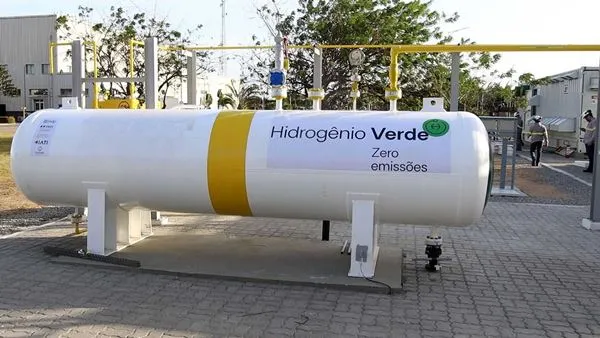
Hydrogen Stations in Portugal

Table of Hydrogen Stations in Portugal
| DEALER | ADDRESS | CITY |
|---|---|---|
| EMAC | Estr. de Manique 1830 | Alcabideche |
| To see more records, please click below to view the map or the list. |
Map of Hydrogen Stations in Portugal
List of Hydrogen Stations in Portugal
Hydrogen Stations in Portugal
Portugal has seen remarkable progress in its fuel station infrastructure, especially when it comes to the implementation of clean technologies such as hydrogen. Since the opening of the first hydrogen station in 2019, the country has seen steady growth in the adoption of this technology, with a clear vision towards a more sustainable future.
Evolution since the First Hydrogen Station
The first hydrogen filling station in Portugal was inaugurated in July 2019 in the city of Matosinhos, near Porto. This station marked an important milestone in the country's energy transition, being the first of its kind open to the public. Operated by PRF (Petróleos de Portugal), the station was a result of collaboration between several entities, including the University of Porto and other technology companies.
The facility in Matosinhos was designed to supply hydrogen to light and heavy vehicles, with a focus on sustainable mobility. Since its inauguration, this station has been crucial in demonstrating the viability of hydrogen as a clean and efficient fuel alternative.
Since 2019, Portugal has expanded its network of hydrogen stations, with notable growth in recent years. Below are some of the key cities and regions where new stations have been developed:
- Lisbon: In 2021, a station was opened in Sacavém, on the outskirts of Lisbon, which has become a strategic point for hydrogen refueling, especially for public transport fleets.
- Coimbra: The hydrogen station in Coimbra, opened in 2022, is primarily intended to supply the city's buses, although it is also open to private vehicles.
- Faro: The Algarve region has not been left behind, with a station opening in Faro in 2023. This station seeks to boost sustainable tourism in the region, promoting the use of hydrogen vehicles.
- Sines: Sines, a key industrial area, saw the opening of its hydrogen station in 2023, focused on supplying heavy industry and freight transport fleets.
Current Projects and Forecasts for 2025
Looking ahead, Portugal plans to significantly expand its hydrogen station network by 2025. Notable projects include:
- Lisbon: Galp and PRF plan to open two new stations in the metropolitan areas of Lisbon, including one in the Sintra area and another in Parque das Nações.
- Porto: Two additional stations are planned to open in Vila Nova de Gaia and Maia, in collaboration with Repsol and EDP.
- Évora: The Alentejo region will see its first hydrogen station in 2025, with a project led by EDP to supply both public transport and local agriculture.
- Braga: Repsol has announced the construction of a station in Braga, which will serve as a regional hub for the supply of hydrogen to light vehicles and heavy.
In addition to stations in urban areas, projects are also being planned in rural and strategic areas to ensure full coverage nationwide. This includes stations in towns such as Viseu, Guarda and Beja.
Largest Operators of Hydrogen Stations in Portugal
In Portugal, several major operators are leading the expansion of hydrogen infrastructure:
- PRF (Petróleos de Portugal): With the first station in Matosinhos and others under development in Lisbon and Coimbra, PRF remains a leader in the transition to hydrogen.
- Galp: This energy giant has announced plans to open several hydrogen stations in 2024, with an initial focus on Lisbon and Porto. Galp is also investing in green hydrogen production in Sines.
- Repsol: Repsol has entered the Portuguese hydrogen market with the opening of a station in Faro and has plans to expand into the north of the country, including Braga and Guimarães.
- EDP (Energias de Portugal): EDP has launched an ambitious project to develop a network of stations across the country, starting with the central region, with stations planned in Leiría and Aveiro by 2024.
References
- https://www.prf.pt
- https://www.galp.com
- https://www.repsol.pt
- https://www.edp.com
- https://www.h2portugal.pt






